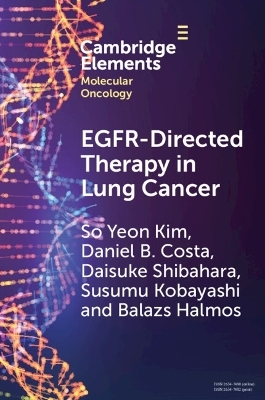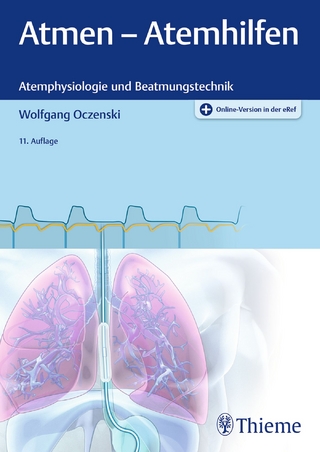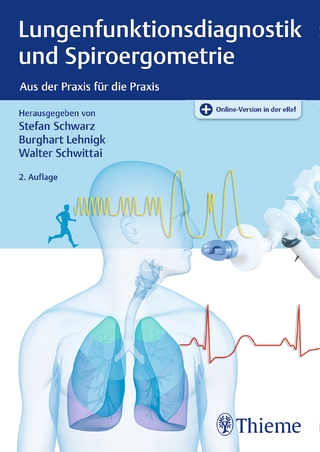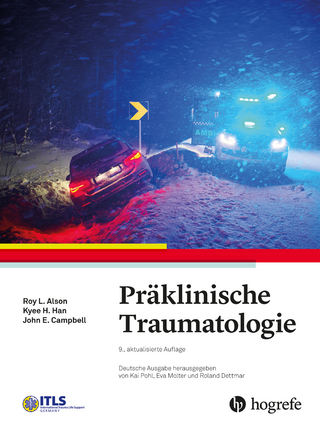
EGFR-Directed Therapy in Lung Cancer
Seiten
2023
Cambridge University Press (Verlag)
978-1-009-34230-8 (ISBN)
Cambridge University Press (Verlag)
978-1-009-34230-8 (ISBN)
This Element describes the structural biology and pathophysiology of EGFR-mutant NSCLC and describes past, current, and future treatment options in different settings. It discusses the biology and recently approved treatment for EGFR-exon 20 insertion mutation and the treatment for the uncommon mutations.
Epidermal growth factor receptor (EGFR)-mutant non-small cell lung cancer (NSCLC) is a clinically important driver alteration affecting approximately one-third of lung cancer patients. Treatments for EGFR-exon 19 deletion and exon 21 L858R NSCLC have evolved over the last decade from first-generation reversible tyrosine kinase inhibitors (TKI) to third-generation irreversible TKIs, of which osimertinib has been the widely accepted as first-line therapy. Despite survival improvement seen with osimertinib and its efficacy against acquired T790M mutation, resistance through on-target and off-target pathways eventually develop. This Element describes the structural biology and pathophysiology of EGFR-mutant NSCLC and discusses past, current, and future treatment options in the metastatic, neoadjuvant, and adjuvant settings. It describes the biology and recently approved treatment for EGFR-exon 20 insertion mutation and the treatment for the uncommon exon 18 (G719X), 20 (S768I), and 21 (L861Q) mutations. It also outlines the promising clinical applications of circulating tumor DNA (ctDNA).
Epidermal growth factor receptor (EGFR)-mutant non-small cell lung cancer (NSCLC) is a clinically important driver alteration affecting approximately one-third of lung cancer patients. Treatments for EGFR-exon 19 deletion and exon 21 L858R NSCLC have evolved over the last decade from first-generation reversible tyrosine kinase inhibitors (TKI) to third-generation irreversible TKIs, of which osimertinib has been the widely accepted as first-line therapy. Despite survival improvement seen with osimertinib and its efficacy against acquired T790M mutation, resistance through on-target and off-target pathways eventually develop. This Element describes the structural biology and pathophysiology of EGFR-mutant NSCLC and discusses past, current, and future treatment options in the metastatic, neoadjuvant, and adjuvant settings. It describes the biology and recently approved treatment for EGFR-exon 20 insertion mutation and the treatment for the uncommon exon 18 (G719X), 20 (S768I), and 21 (L861Q) mutations. It also outlines the promising clinical applications of circulating tumor DNA (ctDNA).
1.Structural biology and mechanism of activation of EGFR; 2. EGFR-associated oncogenesis; 3. Tyrosine kinase inhibitors (TKIs) as targeted treatment for EGFR-mutant NSCLC; 4. EGFR-TKIs as adjuvant or neoadjuvant therapy; 5. EGFR-Exon 20 insertion mutations; 6. Resistance mechanisms and therapies in metastatic resistant EGFR-NSCLC; 7. Uncommon EGFR-activating mutations; 8. Immunotherapy in metastatic EGFR-mutant NSCLC; 9. Management of CNS disease and oligometastatic EGFR-mutant NSCLC; 10. ctDNA in EGFR-mutant NSCLC; 11. Guidelines and recommendations for EGFR-mutant NSCLC; References.
| Erscheinungsdatum | 18.01.2023 |
|---|---|
| Reihe/Serie | Elements in Molecular Oncology |
| Zusatzinfo | Worked examples or Exercises |
| Verlagsort | Cambridge |
| Sprache | englisch |
| Maße | 152 x 228 mm |
| Gewicht | 80 g |
| Themenwelt | Medizinische Fachgebiete ► Innere Medizin ► Pneumologie |
| Medizin / Pharmazie ► Medizinische Fachgebiete ► Onkologie | |
| Studium ► 2. Studienabschnitt (Klinik) ► Anamnese / Körperliche Untersuchung | |
| ISBN-10 | 1-009-34230-4 / 1009342304 |
| ISBN-13 | 978-1-009-34230-8 / 9781009342308 |
| Zustand | Neuware |
| Haben Sie eine Frage zum Produkt? |
Mehr entdecken
aus dem Bereich
aus dem Bereich
Aus der Praxis für die Praxis
Buch (2022)
Thieme (Verlag)
71,00 €
International Trauma Life Support (ITLS)
Buch | Softcover (2024)
Hogrefe AG (Verlag)
70,00 €


